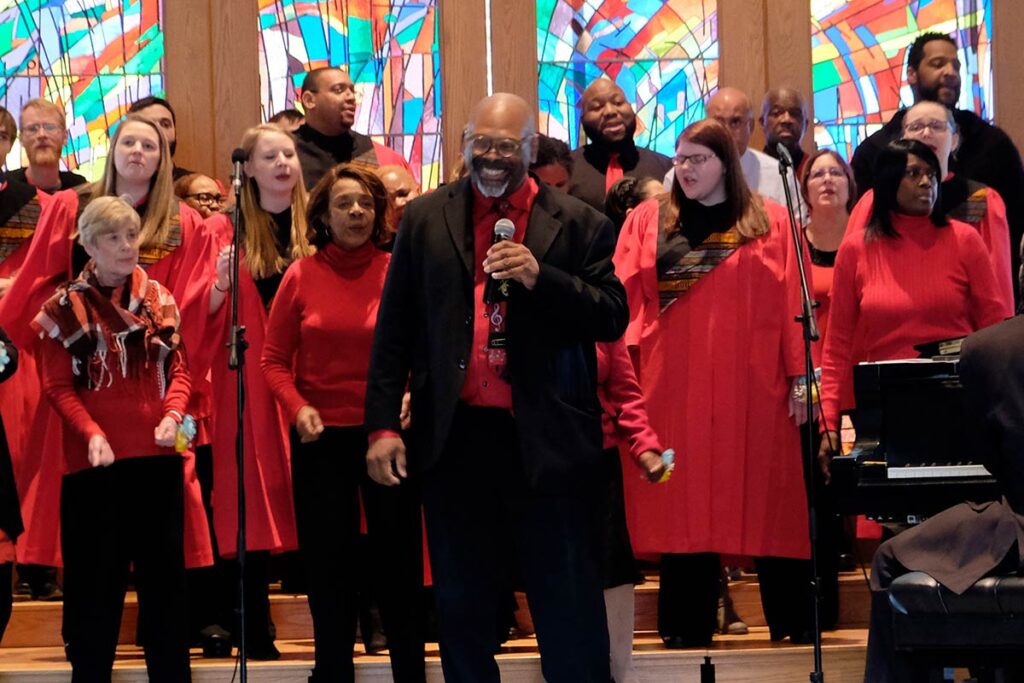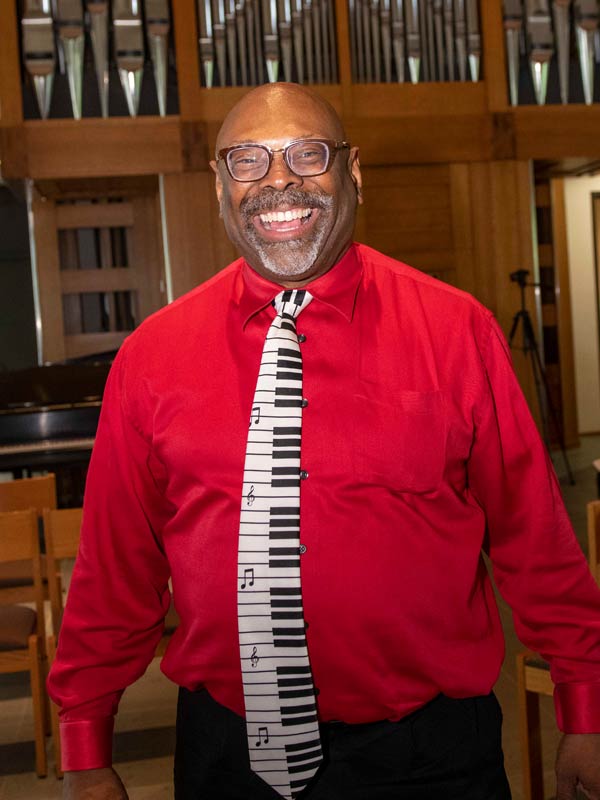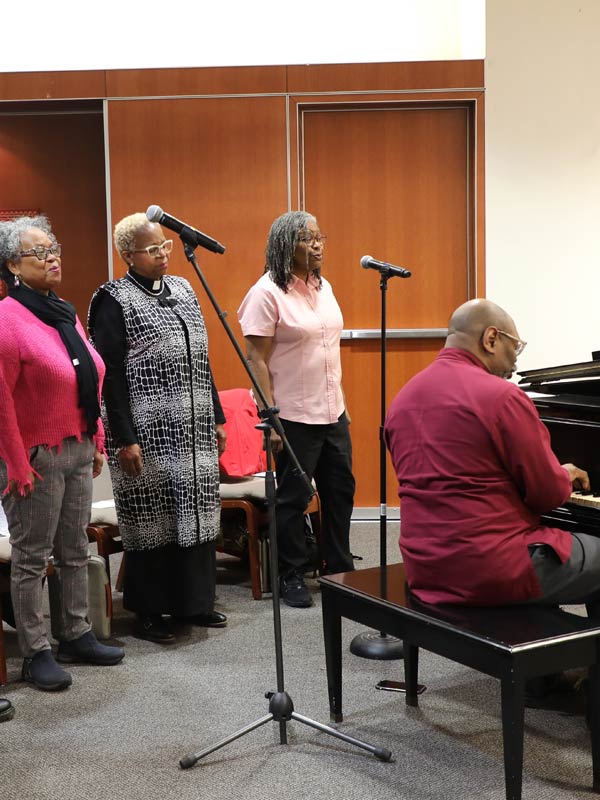A Unifying Force: The Transformative Role of Music at LSTC
By Sarah Brooks

Students at the Lutheran School of Theology at Chicago come from more than 60 countries, bringing diverse backgrounds, identities, and perspectives to their work in ministry. For many students who hail from disparate environments and contexts, music serves as a bridge, connecting them and deepening their faith.
Talented musician, composer, and conductor Dr. Keith Hampton has witnessed this fellowship unfold at LSTC for more than 20 years. As LSTC’s esteemed Cantor to the Seminary Community, he leads the college through prayer and music in twice-weekly worship services on Mondays and Wednesdays. Hampton’s role involves honoring the musical traditions of each culture through song. He hopes that all feel comfortable in LSTC’s space of worship.
“I’m a firm believer of ‘music of the people,” said Hampton. “LSTC is global, so I have the opportunity to do so many different things with our worship services.”
LSTC’s commitment to social justice ripples through its musical offerings, even extending to the vernacular Hampton uses in services. He champions inclusive language when referring to God and is mindful of when to sing or not to sing Alleluia during Lent based on cultural norms and practices. Additionally, Hampton shared that some individuals have contested song-label assignments restricted to “men” or “women.” Instead, he asks singers to identify their voice as high or low—bass, tenor, soprano, or alto—and choose the part they’re most comfortable singing.


To keep offerings fresh and expansive, Hampton plans, coordinates, and leads the LSTC music ministry, a group that exemplifies the college’s traditions of faith and social justice through their musical repertoire.
“One week might be gospel oriented, another will feature handbells, the next will showcase the flute and guitar,” he explained. “That’s to give us a sense of musical diversity.”
Worship services also connect to larger themes that emphasize LSTC’s mission of elevating Black history, women’s history, LGBTQIA pride, and Indigenous and Asian heritage. As a means of connection, Hampton selects music from each culture’s traditional genres and encourages the choir to sing at least one verse in the song’s native language before moving to English.
In every service, “I would say that we are being led and guided by the Holy Spirit,” Hampton said. The power of music speaks for itself. We don’t always have to rehearse it. We often receive and participate in the music, allowing it to flow from within us.”
All are welcome at LSTC’s worship services. Monday’s service showcases meditative prayers and scripture reading for 30 minutes, while Wednesday’s Eucharistic service lasts one hour and features specially prepared music by the LSTC music ministry.